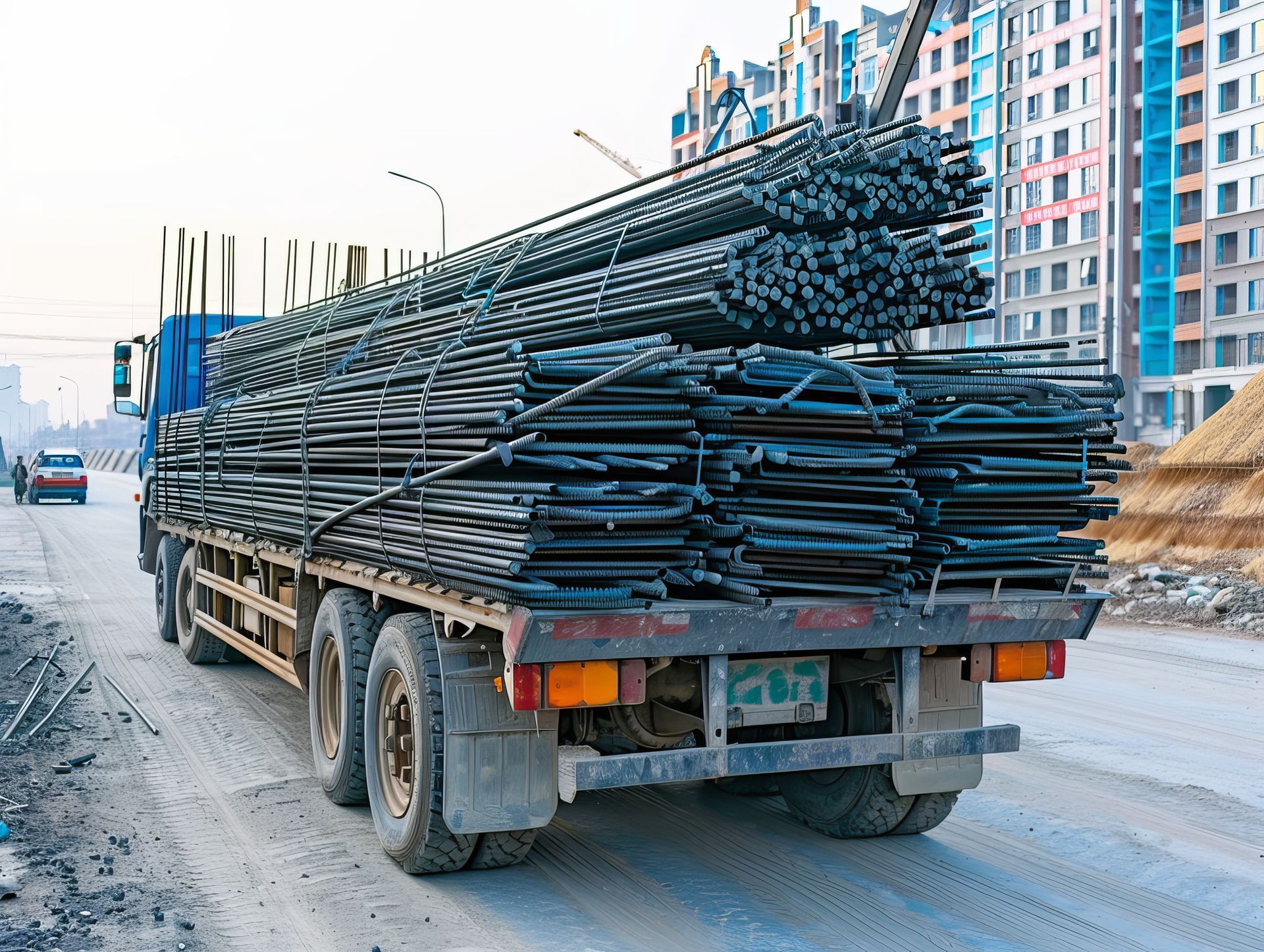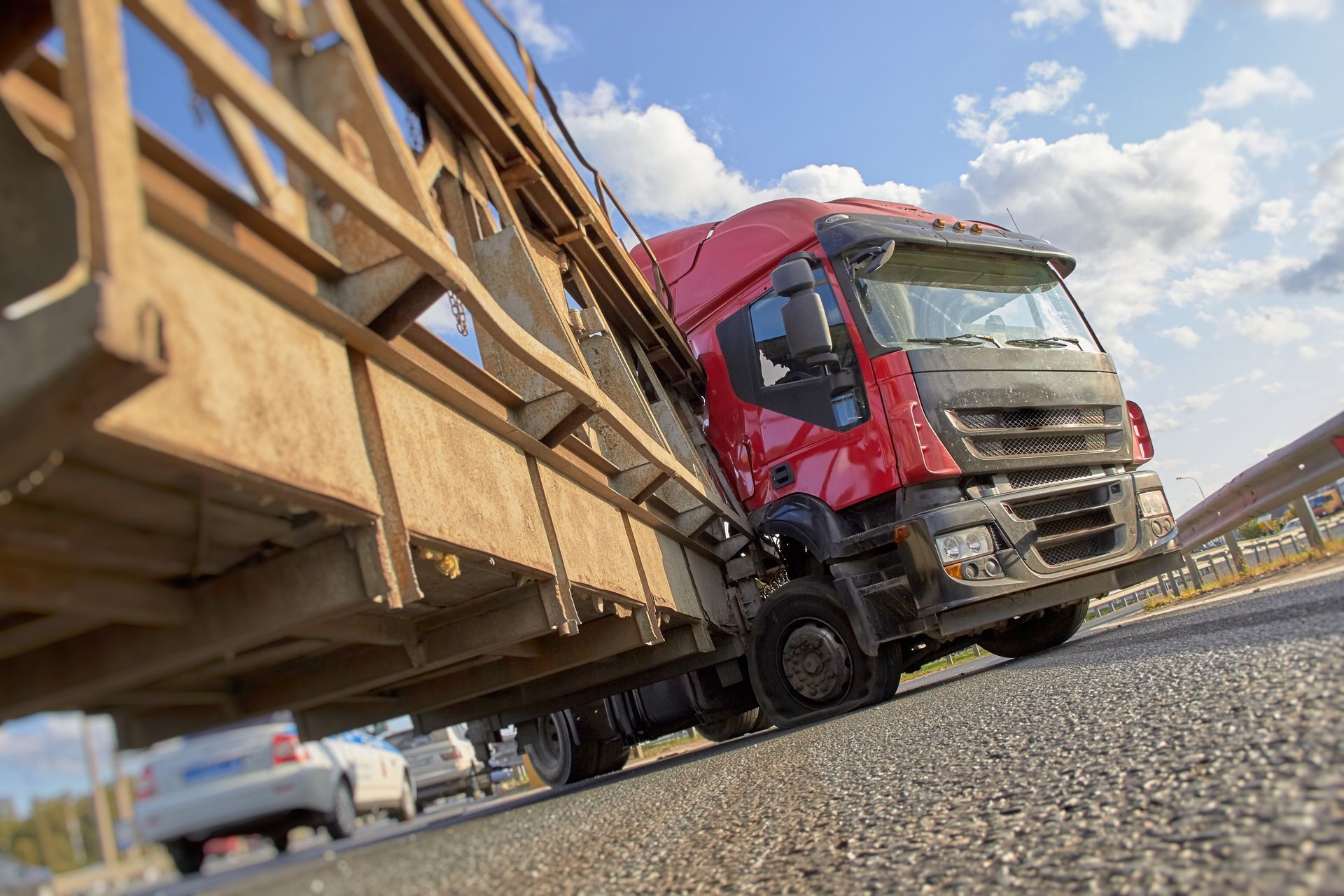Load Securement and Its Role in Truck Accidents

Truck accidents are among the most severe types of road incidents due to the sheer size and weight of commercial vehicles. One critical yet often overlooked factor contributing to these accidents is improper load securement.
Making sure that cargo is correctly loaded and secured on a truck is not only a regulatory requirement but also a crucial aspect of road safety.
The Importance of Load Securement
Load securement refers to the methods and techniques used to make sure that the cargo on a truck remains stable and secure throughout transit. Proper load securement is vital for several reasons:
- Safety of Road Users: Unsecured or improperly secured loads can shift, fall off or cause the truck to become unstable, posing significant hazards to the truck driver and other road users.
- Compliance with Regulations: Regulatory bodies, such as the Federal Motor Carrier Safety Administration (FMCSA), have stringent guidelines regarding load securement. Non-compliance can result in hefty fines and legal consequences.
- Protection of Goods: Properly securing cargo minimizes the risk of damage to the goods being transported, making sure that they reach their destination in good condition.
How Improper Load Securement Contributes to Truck Accidents
Improper load securement can lead to several dangerous situations on the road. Here are some common issues and how they contribute to accidents:
- Load Shifting: When cargo is not adequately secured, it can shift during transit. This sudden movement can alter the truck’s center of gravity, leading to loss of control, rollovers and jackknifing.
- Falling Debris: Inadequately secured cargo can fall off the truck, creating obstacles on the road. Other vehicles may collide with this debris, causing accidents, injuries and fatalities.
- Overloaded Trucks: Overloading a truck beyond its weight capacity can strain the vehicle’s braking system and reduce maneuverability. This can lead to brake failures and difficulty controlling the truck, especially on inclines and curves.
- Uneven Distribution: If the load is not evenly distributed, it can cause the truck to become unbalanced. This imbalance can make it harder to steer, especially during emergency maneuvers, increasing the likelihood of accidents.
Real-Life Examples of Load Securement Failures
Several high-profile accidents have highlighted the dangers of improper load securement. For instance, in 2013, a truck carrying a load of metal beams lost part of its cargo on a busy highway, leading to multiple collisions and severe injuries.
In another case, a truck transporting heavy machinery overturned due to an unevenly distributed load, resulting in fatalities and significant property damage.
These incidents underscore the need for strict adherence to load securement regulations and practices.
Regulations and Standards for Load Securement
In the United States, the FMCSA sets forth regulations that govern load securement for commercial vehicles. These regulations specify:
- Types of Securement Devices: The use of appropriate devices such as chains, straps and binders to secure cargo.
- Inspection Requirements: Regular inspection of cargo and securement devices before and during transit to ensure they remain effective.
- Specific Securement Methods: Guidelines on how to secure different types of cargo, including heavy machinery, logs and hazardous materials. These regulations are designed to make sure that cargo remains secure and that trucks operate safely on the road.
Best Practices for Load Securement
Adhering to best practices in load securement is essential for preventing accidents. Here are some key practices:
- Use the Right Equipment:
Ensure that securement devices are appropriate for the type of cargo and are in good condition. Chains, straps and binders should be free of wear and damage.
- Distribute Weight Evenly:
Load cargo evenly to maintain the truck’s balance and stability. This helps prevent rollovers and loss of control.
- Regular Inspections: Conduct thorough inspections of the cargo and securement devices before departure and at regular intervals during transit. Address any issues immediately to maintain safety.
- Training for Drivers: Provide comprehensive training for drivers on proper load securement techniques and the importance of adhering to regulations. Well-trained drivers are more likely to follow best practices and identify potential issues before they become hazards.
Technological Advances in Load Securement
Advancements in technology are also playing a role in improving load securement. For example, some companies are developing automated systems that can monitor cargo stability and alert drivers to potential issues in real-time. These systems use sensors to detect shifts in weight distribution and securement device tension, providing an additional layer of safety.
Dedicated Truck Accident Attorneys at ATL Elite in Atlanta, GA
Have you or a loved one been injured in a truck accident? Find a trusted Atlanta truck crash attorney to help you navigate the legal process and fight for the compensation you deserve.
Visit our attorneys page to connect with an Atlanta truck accident lawyer today.


